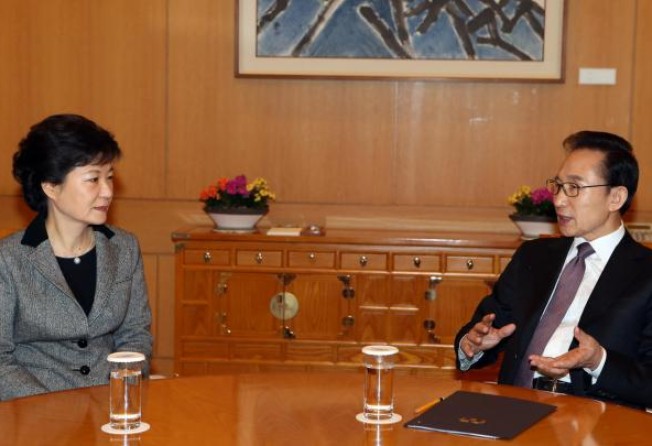Nuclear test complicates matters for Seoul's new president
President-elect's new policy towards Pyongyang has been 'undermined', says party spokesman

With its latest nuclear test, North Korea, a country that thrives on paranoia, has thrown down the gauntlet to the one person in South Korea who was poised to ease tensions with Pyongyang: President-elect Park Geun-hye.
Park, whose policies might be defined as centre-right, assumes power on February 25. She made it clear during the December election campaign that she would seek to thaw incumbent Lee Myung-bak's frozen relations with Pyongyang through incremental confidence-building steps.
Her team said she would establish offices in Seoul and Pyongyang to promote exchange in public health, religion, and scholarship. If North Korea moved towards denuclearisation, she would create a pan-Korean economic community. She would do this by expanding the existing cross-border industrial complex in Kaesong, North Korea, that is conducting joint exploration for natural resources in the North. She would also embed a South Korean business presence at the nascent North Korean special economic zones in the northeast of the country.
"I plan to break with this black-or-white, appeasement-or-antagonism approach and advance a more balanced North Korea policy," she said.
It would contrast not only with the hawkish policy of Lee but with the "Sunshine Policy" of the liberal governments in power in Seoul between 1998 and 2008 as well, as it would include both carrots and sticks. Park's "stick" would be a strong security posture and a strengthened alliance with the United States.
She harshly criticised Pyongyang's December satellite launch - widely seen as cover for an intercontinental ballistic missile test - and Tuesday's nuclear detonation, which has complicated the planned engagement.
"North Korea's nuclear test is a grave threat to the Korean Peninsula and international peace and hampers inter-Korean trust-building and undermines efforts for peace," Park's spokeswoman said on Tuesday.
Moreover, with condemnation raining down upon Pyongyang from around the world, South Korea faces pressure to agree to UN sanctions and resolutions, which means there could be more stick than carrot in her policy. That, paradoxically, may be exactly what Pyongyang wants, experts say.
The North Korean leadership has failed to improve the lives of its people. That means the regime's credibility rests on it being a military-first state that can defend its people against the "hostile forces" in the outside world.
"Sometimes the North Korean leadership needs friends - to provide food aid, oil and other things - but they also need to build tension on the peninsula, to unite the people," said Dr Choi Jin-wook, a researcher at the Korea Institute of National Unification in Seoul. "For this reason, they have enemies."
And not only does a fortress state need a fortress mentality, Kim Jong-un has sound historical precedent for cutting his nation off from outside influence.
The Yi family that ruled Korea from 1392 to 1910 was one of the world's longest-lived royal dynasties. It collapsed soon after opening the gates of its "Hermit Kingdom" to the outside world.
"When the dynasty opened its doors, it led to instability and the fall of the kingdom; the dynasty had lasted so long because its conservatism had served as a form of stability," said John Burton, a columnist for The Korea Times newspaper.